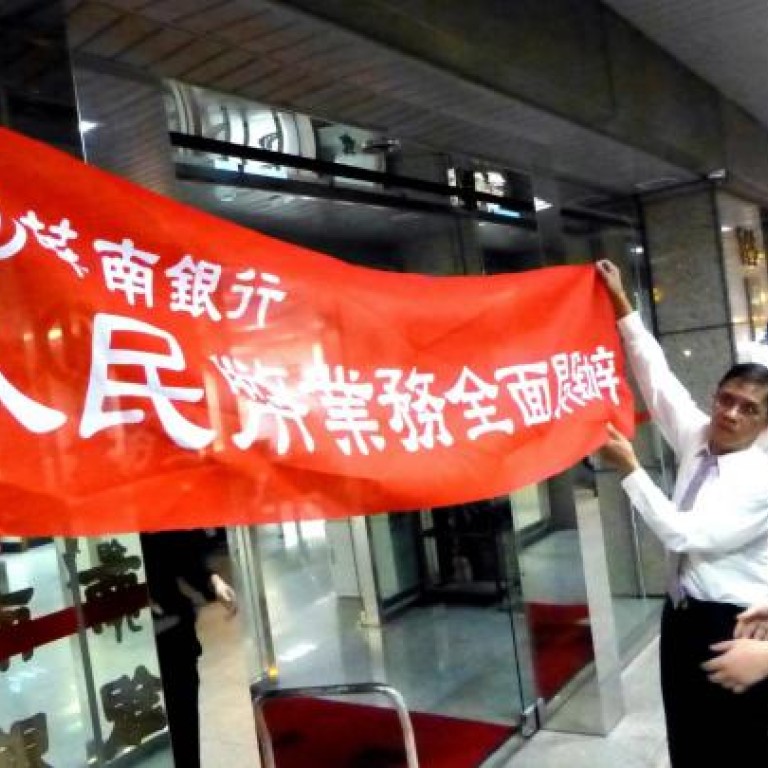
Beijing and Taipei plan exchange of government officials
The two sides would also not rule out the possibility of issuing travel permits and granting each other's representatives something similar to the immunity from prosecution enjoyed by foreign diplomats, a senior Taiwanese official said yesterday, but that would be the next step for discussion after the establishment of the offices.
Taipei and Beijing plan to exchange government officials and station them in representative offices in the near future, a unimaginable move not long ago for the political rivals, who are still technically at war.
The two sides would also not rule out the possibility of issuing travel permits and granting each other's representatives something similar to the immunity from prosecution enjoyed by foreign diplomats, a senior Taiwanese official said yesterday, but that would be the next step for discussion after the establishment of the offices.
Wang Yu-chi, chairman of the island's top mainland policy planning body, the Mainland Affairs Council (MAC), told a news conference in Taipei yesterday: "Under our initial plan, as soon as the Straits Exchange Foundation (SEF) sets up a representative office on the mainland, the Mainland Affairs Council will also post officials there at the same time."
That would be based on the principle of dignity and equality, he said, given that most mainland officials who dealt with Taiwan did so in a semi-official or non-official capacity. Some staff at the mainland's Association for Relations Across the Taiwan Strait (Arats) are also government officials at the mainland State Council's Taiwan Affairs Office.
Arats and SEF - nominally private - were set up in Beijing and Taipei respectively in the early 1990s to represent their governments in cross-strait matters in the absence of formal relations.
Cross-strait relations improved after Ma Ying-jeou became Taiwan's president in 2008 and adopted a policy of engaging Beijing.
The two sides have signed 18 non-political co-operation agreements since then and have also set up some lower-level tourism and trade representative offices on the other side of the strait. These officials, however, are non-government.
With the rapid increase in the number of non-political exchanges, the two sides found the need to set up more authoritative offices. They finally touched on the issue late last month, when Beijing sent senior Arats officials to Taipei to discuss the issue.
If the two sides needed to discuss the issuance of travel documents, that would be possible, Wang said, adding that he believed representative office officials would enjoy immunity status similar to foreign diplomats "in order to facilitate their work in each other's place".
He said he did not want to give a timetable, but early establishment of the offices would meet the hopes of at least 70 per cent of Taiwanese people.
